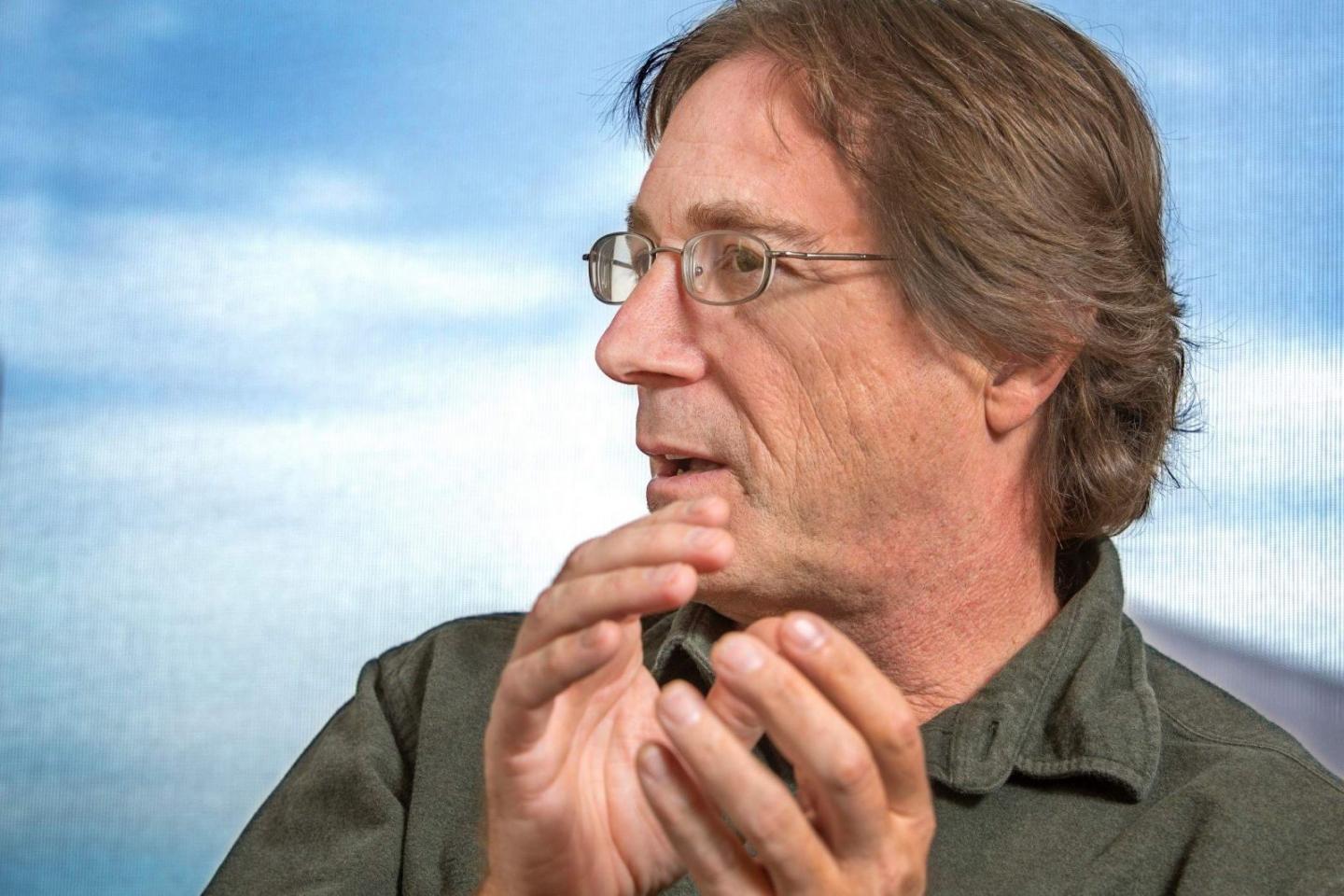
Credit: FSU Photography Services
A pioneering new study led by Florida State University biologists could fundamentally change our understanding of how embryonic stem cells differentiate into specific cell types.
The research, published today in the journal Stem Cell Reports, calls into question decades of scientific consensus about the behavior of embryonic stem cells as they transition to endoderm, a class of cell in animal embryos that gives rise to the digestive and respiratory systems.
David M. Gilbert, the J. Herbert Taylor Distinguished Professor of Molecular Biology in FSU’s Department of Biological Science, said the study upends well-established notions of when embryonic stem cells chart their unalterable courses toward a fixed endoderm lineage — in this case, their eventual fate as specific digestive or respiratory cells.
“This paper challenges the longstanding assumption that embryonic stem cells remain quite plastic and malleable during the earliest stages of cell commitment,” Gilbert said. “We show that human embryonic stem cells can commit irreversibly to endoderm lineages — liver and pancreas cells, for example — very quickly.”
The findings represent a new chapter in the study of embryonic stem cell differentiation, a field that could be key to helping scientists and clinicians unlock improved therapies for a range of diseases.
Using a sophisticated protocol developed by the San Diego-based regenerative medicine firm ViaCyte, Gilbert and his collaborators exposed a sample of embryonic stem cells to culture conditions engineered to nudge the cells into the definitive endoderm stage, a fast lane to specialized cell development. The team then quickly returned the cells to a bath of treatment factors designed to restore them to an embryonic state.
Based on previous studies, the researchers presumed it would take days in the endoderm culture, or at least a full cell division cycle, for the cells to commit to a developmental track.
“In fact, we found that after only a few hours exposure to the endoderm cocktail — a fraction of a cell division cycle — the cells could be returned to the stem cell cocktail and continue to go through the same series of gene expression changes as the control cells that remained in the endoderm cocktail.”
In other words, after a remarkably short soak in the endoderm culture, the cells had committed full bore to a specific cellular program.
“Prior to the experiments reported here, there was no expectation that early stem cell lineage commitment would be so rapid and irreversible,” Gilbert and his co-authors wrote in their paper.
This wasn’t the only entrenched assumption challenged by the team’s study. Scientists long believed the 3D organization of chromosomes in the nucleus to be both exceptionally rigid and closely linked to replication timing — the order in which segments of DNA are copied before cell division. It was thought that the only way to reconfigure that architecture was to crack open a cell’s nucleus when its chromosomes were being delivered to its daughter cells.
It turns out those assumptions may have been misguided as well.
“We show that chromosome architecture can be remodeled locally and rapidly without dismantling the entire cell nucleus — akin to changing the scaffolding of a building without tearing it down — which was quite unexpected,” Gilbert said. “We also show that these changes in chromosome architecture occur dynamically and immediately upon stimulation of stem cells to become endoderm. This finding demonstrates that replication and architecture do not always go hand in hand, they can be what we call ‘uncoupled.'”
The researchers’ work delinking replication timing from chromosome architecture and showing the ability to surgically remodel that architecture could help refine scientists’ understanding of embryonic stem cell behavior. Along with the discovery that stem cell lineage commitment occurs more rapidly and irreversibly than expected, Gilbert said the findings raise critical questions about the basic nature of stem cells and the barriers to turning one cell into another.
If researchers can harness these newly acquired insights, they could begin unraveling the mysteries of how and why stem cells commit to their developmental tracks and why certain cells are especially difficult to reprogram.
That information could inform the creation of new, powerful tools to combat disease and allay human suffering.
“The fact that large changes in genome organization and their temporal order of replication can be remodeled so easily, and that this is correlated with irreversible commitment so quickly in a cell culture system in the laboratory, means that we might be able to use this system to get at the mechanisms that represent irreversible commitment,” Gilbert said. “We never anticipated that — we expected irreversible commitment to take a lot more work, time and expense.”
###
Scientists from ViaCyte, Emory University and the University of Georgia contributed to this study. The research was funded by the National Institutes of Health.
Media Contact
Zack Boehm
[email protected]
Original Source
https:/
Related Journal Article
http://dx.




